
Arabic
Arabic courses
The Department of Languages, Cultures and Linguistics (LCL) at the University of Southampton is one of the leading centres in the country for the study of foreign languages and cultures. We have an excellent track record in delivering high quality language courses to members of the public.
Our courses start with Stage 1a (Beginners) and this is an ideal way to try out learning a new language before committing to a longer period of study. We also offer more advanced levels of study, from Stage 2 (Improvers) to Stage 4 (Upper-Intermediate). The descriptions in the section headed Language Stages below should help you choose the right level of evening course for you.
To book on a course, please click on the language of your choice below.
To Join our Mailing list, please click here.

Arabic courses

French courses
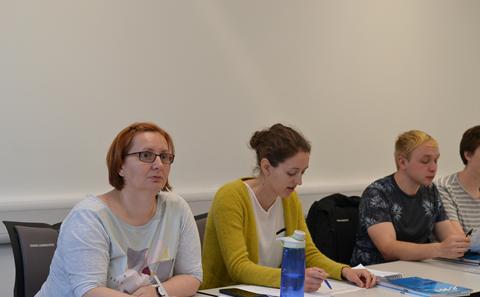
German courses
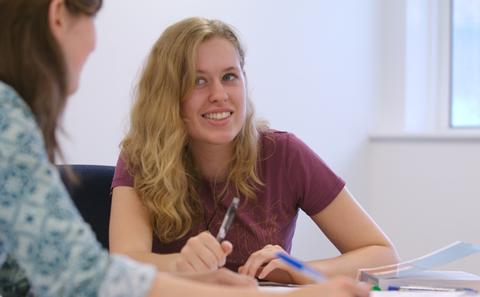
Greek courses

Italian courses
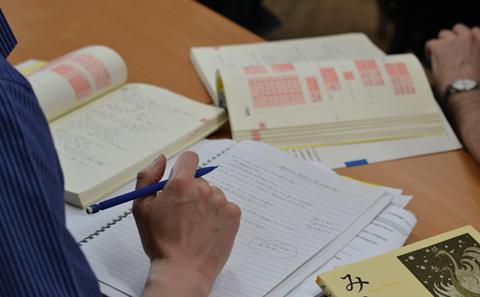
Japanese courses
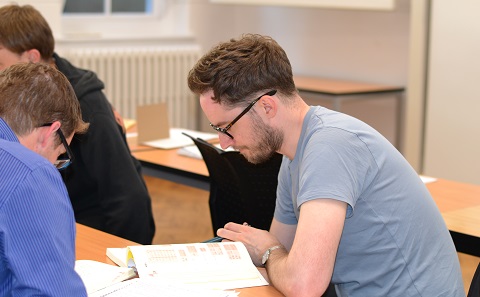
Mandarin Chinese courses
-standard-medium.jpg_SIA_JPG_fit_to_width_MEDIUM.jpg)
Portuguese courses
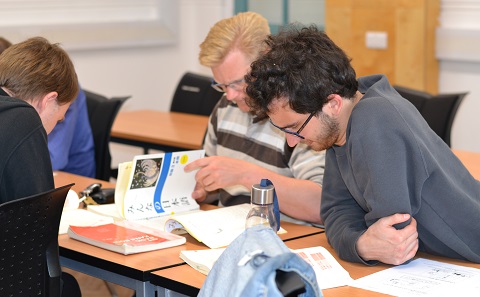
Russian courses
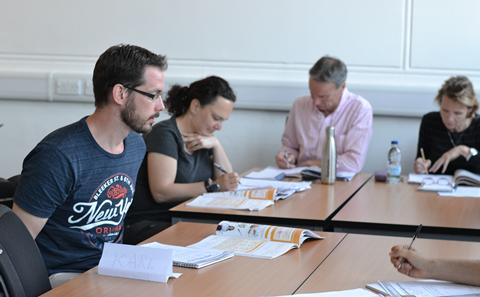
Spanish courses
The following descriptions should help you choose the right level of evening course for you. All courses are marked with their name and stage, both on our website and on the Online Store.
| Course title and level | Language Stage | Length | Runs |
|---|---|---|---|
| A Taste of… (Beginners) |
Stage 1a | 10 weeks (20 weeks) | Autumn term |
| move on in... (beginners) | Stage 1b&c | 20 weeks (40 hours) | Spring and Summer terms |
| Improvers (Lower-intermediate) | Stage 2 |
30 weeks (60 weeks) |
All year (Autumn term start) |
| Intermediate | Stage 3 |
30 weeks (60 weeks) |
All year (Autumn term start) |
| Upper-Intermediate | Stage 4 |
30 weeks (60 weeks) |
All year (Autumn term start) |
| Language club advanced | Stage 5+ |
10 weeks (fortnightly 10 hours per term |
All year (bookings taken termly) |
The following descriptions should help you choose the right level of evening course for you. All courses are marked with their name and stage, both on our website and on the Online Store.
The best way to feel confident about your personal Language Stage is to come along to one of our Lifelong Learning Open Days at the Avenue Campus, where tutors from each language will be available to give you an informal assessment and help you with your decision.
This Stage is aimed at students with no or very little previous knowledge. You will learn the basic grammatical structures and pronunciation of the language and a wide range of commonly used vocabulary. By the end of this course, you should be able to participate in simple conversations on everyday topics and to read and write short texts. You should be able to ‘get by' in everyday situations like travelling, asking directions, shopping, ordering meals, talking about yourself, your family and your interests at a basic level.
In popular European languages, Stage 1 aims to get you to a standard approximately equivalent to GCSE. (In non-European languages, your reading and writing skills may be less advanced.)

This Stage is suitable for you if you feel confident getting by in everyday situations like travelling, asking directions, shopping, ordering meals, talking about yourself, your family, your interests at a basic level. It is also aimed at students who have attended a part-time course for one year and made very rapid progress, or studied at a more leisurely pace for two years and now feel ready to learn a range of more advanced structures and extend their vocabulary beyond the basic level. If you wish to study a popular European language, you should have a good GCSE standard to start Stage 2. (In languages with a different written script to English, your reading and writing skills may be slightly less advanced.)
If you are studying a popular European language, by the end of Stage 2 you should have achieved AS level/lower ‘A' level standard. (In non-European languages, your reading and writing skills may be slightly less advanced.)
To start Stage 3, you should normally have completed at least two years' part-time study of the language with directed independent learning, or have a similar level of knowledge. (If you are studying English as a Foreign Language you should have IELTS 6.0 or equivalent.) In popular European languages, Stage 3 is for students whose language level is equivalent to AS level/lower ‘A' level standard. (In non-European languages, your reading and writing skills may be at a slightly less advanced level.) Stage 3 integrates the study of the language with topics relating to the life and culture(s) of countries where the language is spoken. Whilst consolidating your basic grammar, you will study more advanced structures and develop the confidence to express ideas and concepts on most everyday topics with a reasonable level of fluency. You will acquire the ability to understand the gist of most spoken language delivered at normal speed relating to most everyday contexts. Stage 3 also provides the opportunity to practice writing the language more extensively.
By the end of Stage 3 you should have acquired a good ‘A' level standard (if you are studying a European language) and have an in-depth knowledge of some aspects of the culture(s) of countries where the language is spoken.
This stage is for students with a good grade at ‘A' level or an equivalent standard, possibly achieved by stays in countries where the language is spoken. This stage aims to consolidate your grammar and to extend your vocabulary and range of understanding into a wide range of topics and genres using authentic materials from the media of countries where the language is spoken.
As you progress at this stage, you will be able to understand most spoken language and participate in discussion on familiar and complex topics with effectiveness. You should be able to understand complex texts and write accurately using a wide range of expressions. You will also have developed skills in transferring information between languages.
The Choix Goncourt UK is a great occasion for British students who ...
Read MoreCLLEAR, the Centre for Linguistics, Language Education and Acquisit...
Read MoreProf. Laura Domínguez (PI) and Dr Glyn Hicks from Modern Languages ...
Read More